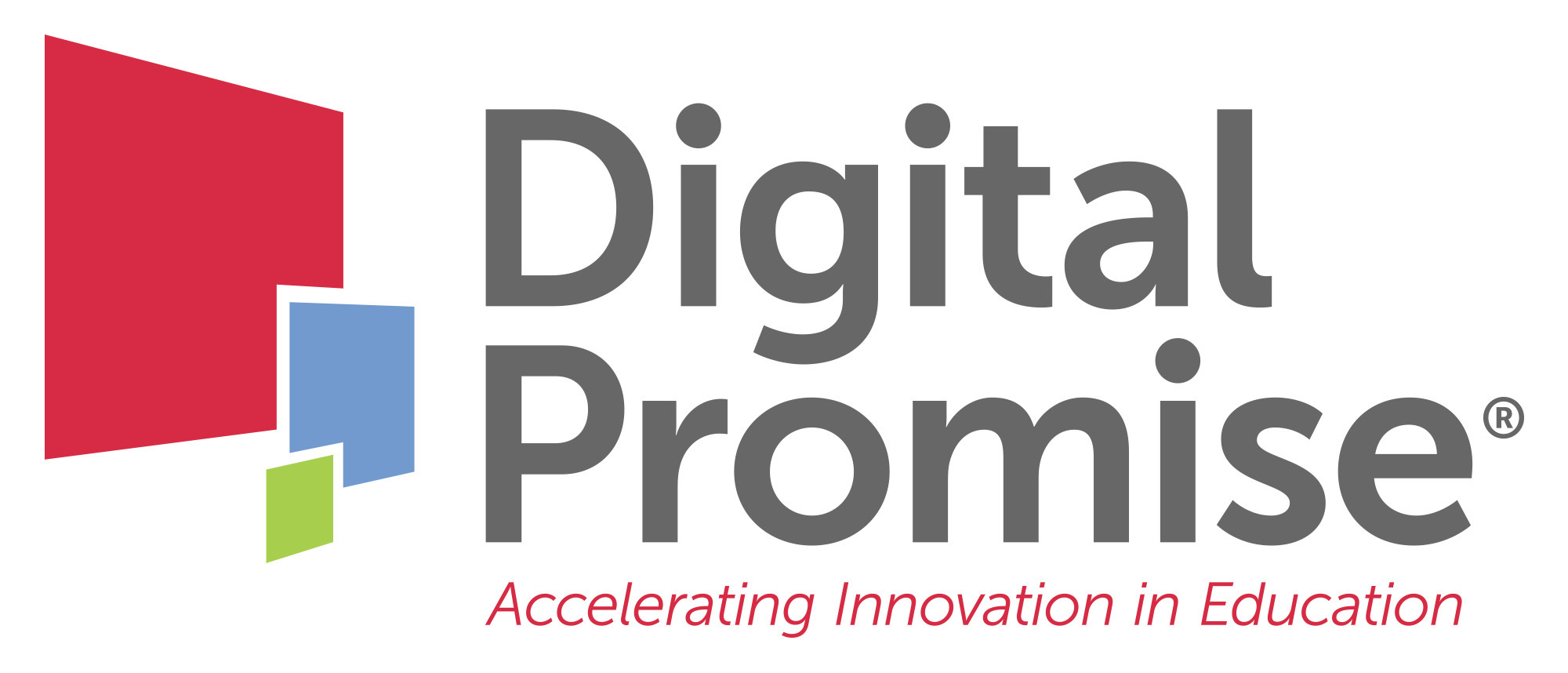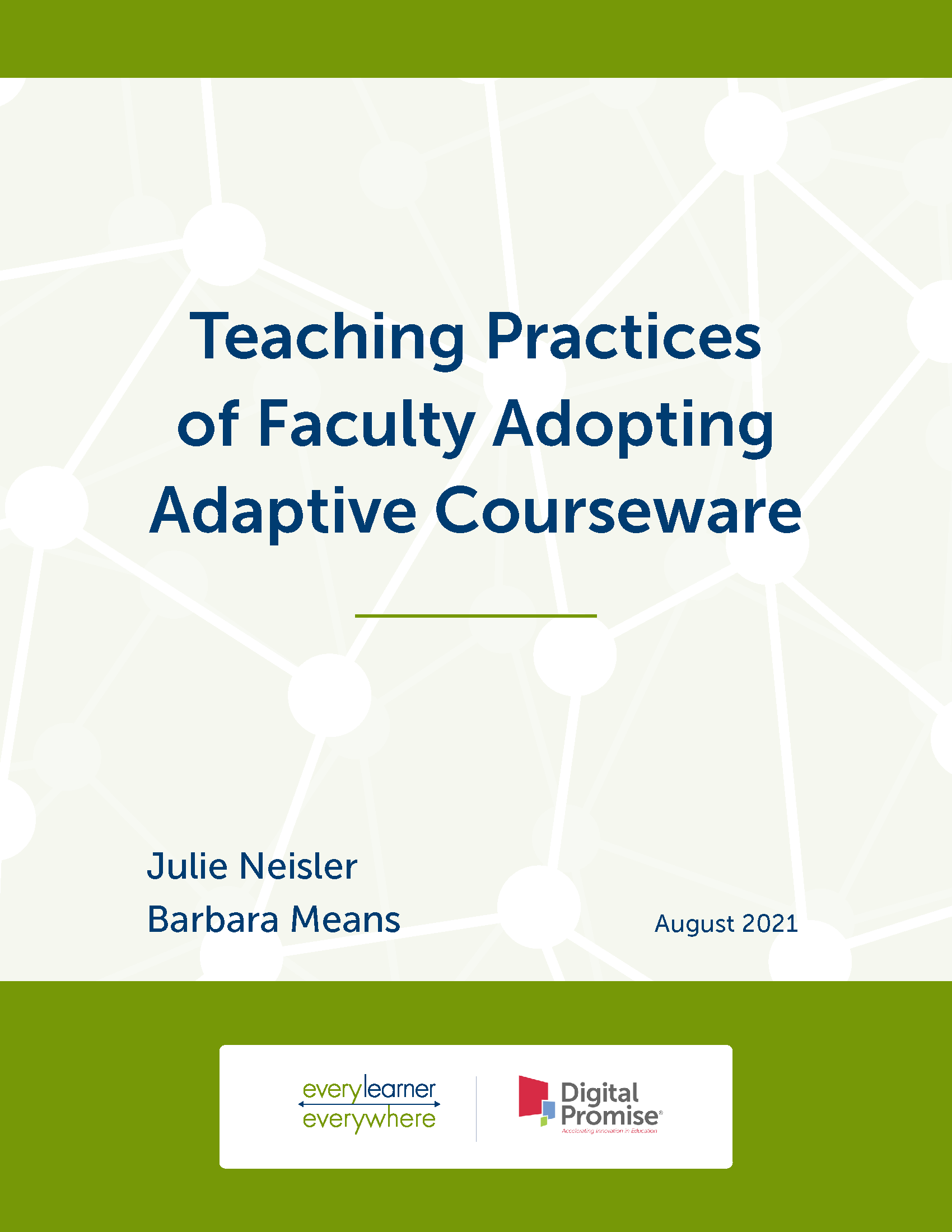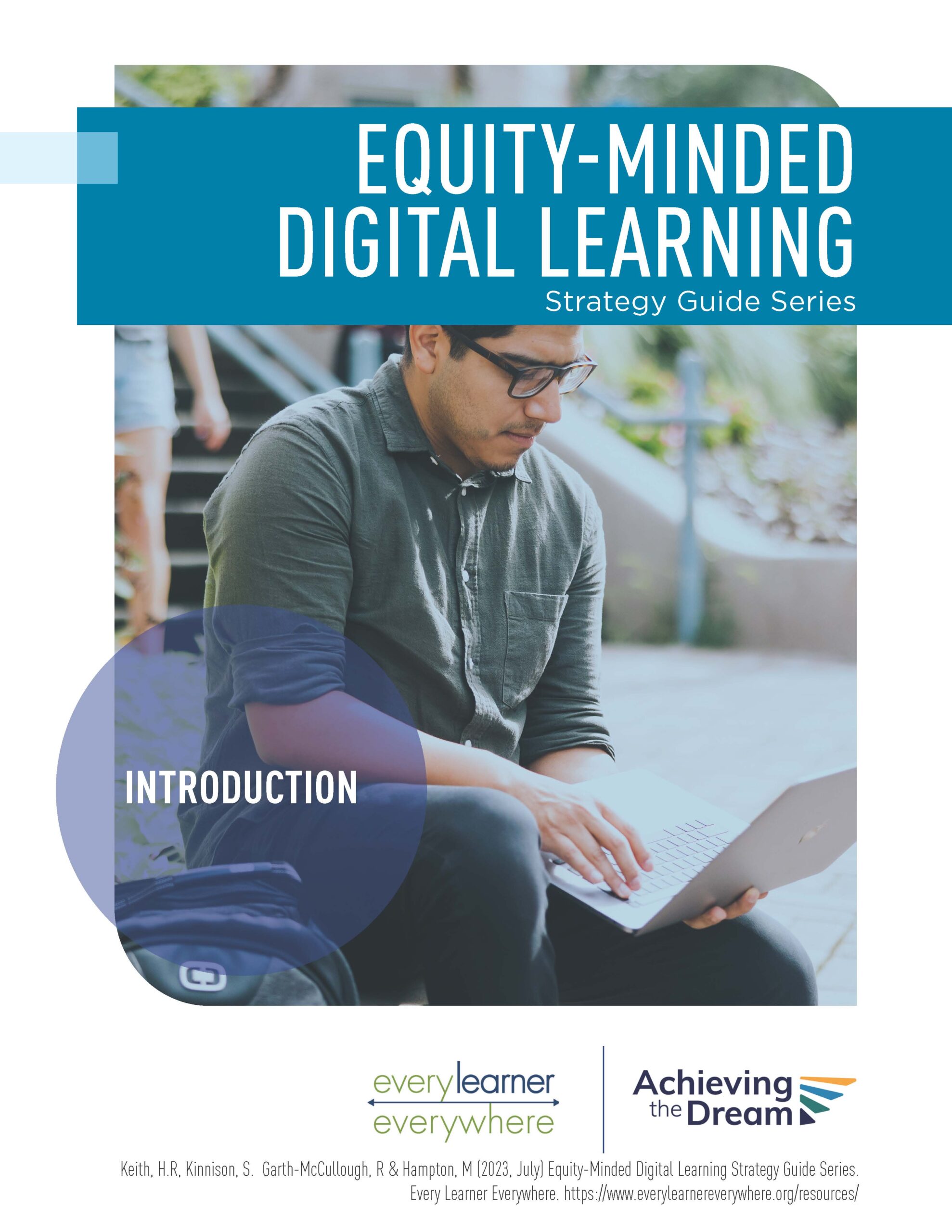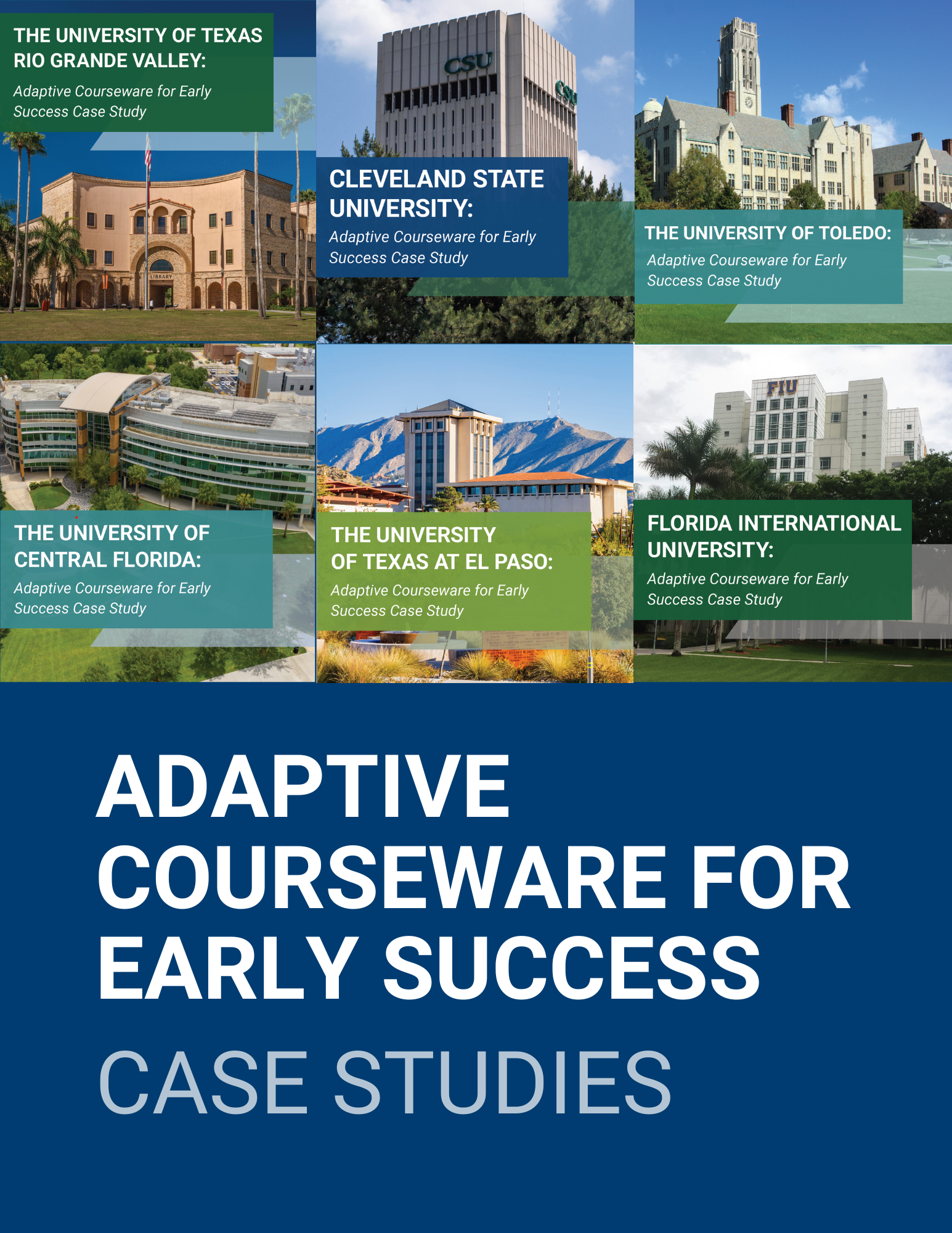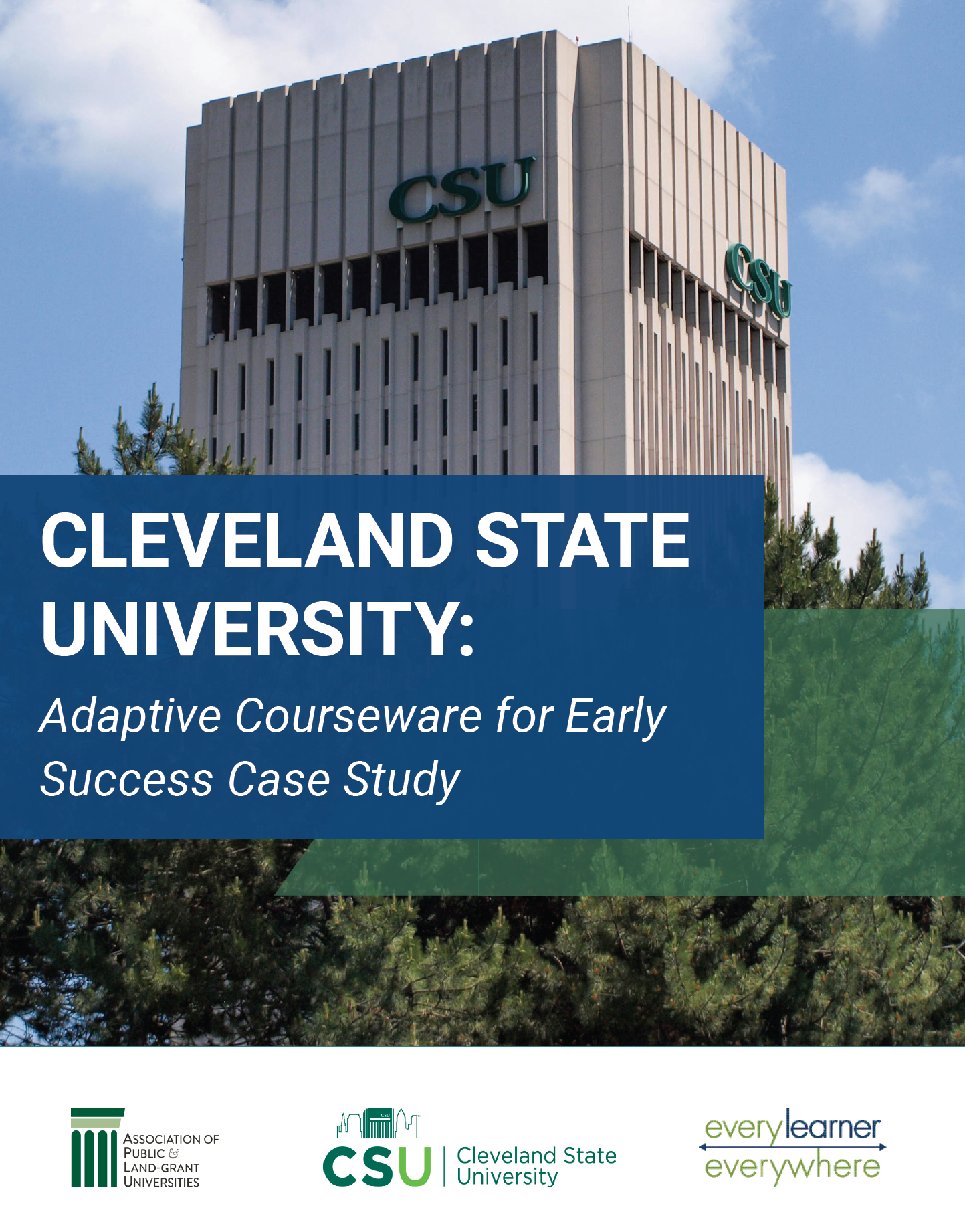The Every Learner Everywhere network was established to help institutions of higher education improve course success rates for racially minoritized students and poverty-impacted students by improving teaching and learning with the support of digital learning tools. Starting in 2019, network members involved in Achieving the Dream (ATD) and the Association of Public and Land-grant Universities (APLU) worked with a set of two-year colleges and four-year universities, respectively, to support these “Lighthouse” institutions as they implemented adaptive courseware into selected gateway courses. Digital Promise administered a survey to participating instructors adopting adaptive courseware at Lighthouse institutions in fall 2020, and this report describes their responses.
Report Highlights
- During this pandemic semester, more than three-quarters of faculty survey respondents taught entirely online.
- Nearly all faculty using adaptive courseware at Every Learner Everywhere Lighthouse institutions employed four of the evidence-based teaching practices during fall 2020: practice with immediate feedback (96%), clear statement of learning objectives (96%), information on how to improve (96%), and use of low-stakes formative assessments (94%). These are all practices directly supported by adaptive courseware.
- Most instructors (70%) looked at the courseware’s instructor dashboard at the whole-class level at least once a week, primarily to determine what topics to concentrate on in upcoming class sessions (43%) or whether course content should be modified in future terms (41%). Instructors were somewhat less likely to seek student input on how the course could be improved; 52% reported soliciting anonymous student feedback while the course was running.
- Instructional practices outside of the courseware tended to be fairly conventional: two-thirds of faculty (68%) reported providing lectures (in person, live online, or recorded) of 30 minutes or more in duration at least once during most weeks.
- The least frequently used practices associated with evidence-based teaching were project-based learning (14%), peer learning or think-pair-share routines (54%), mastery learning (34%), and activities to allay anxiety, stereotype threat, or imposter syndrome (38%). The first two of these are elements of active learning and the last is key to creating an inclusive learning environment for racially minoritized and poverty-affected students.
- Nearly all Every Learner Everywhere courseware instructors (96%) believed that the adaptive courseware helped them improve student learning and allowed them to better monitor progress and to hold individual students accountable for consistent engagement in the class.
- When asked how likely they would be to recommend the courseware product they had used to a friend or colleague teaching the same course, 56% of instructors gave a numerical rating of 9 or 10 on a 10-point scale, resulting in a net promoter score (NPS) of 46.
Lighthouse institutions began piloting new versions of gateway courses incorporating adaptive courseware in fall 2019. Experiences in the first implementation of the revised courses by almost 90 instructors during this pilot phase have been described in a previous Digital Promise report. These instructors were joined by some of their colleagues in adopting adaptive courseware in the spring of 2020, when the COVID-19 pandemic shut down most face-to-face instruction, and courseware use at Lighthouse institutions continued in the fall of 2020. This report describes findings from a survey administered to a sample of Lighthouse institution instructors in fall 2020. It focuses on the nature of their teaching practice and the ways in which they are using adaptive courseware with their students.
Download Report

